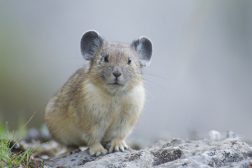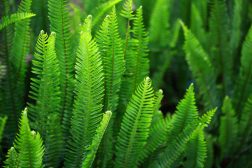Definition
noun, plural: nonapeptides
An oligopeptide comprised of nine amino acid residues
Supplement
Peptides are monomers of amino acids that are bounded together in chains through an amide bond between the carboxyl group of one amino acid and the amine group of the adjacent amino acid. Peptides can be classified according to the number of amino acid residues in a chain. For instance, a dipeptide is a peptide comprised of two amino acid residues whereas a tripeptide is a peptide consisting of three amino acid residues. Thus, a nonapeptide is a peptide chain of nine amino acid residues. The term oligopeptide pertains to a peptide formed by a chain of fewer (i.e. two to twenty) amino acid residues in contrast to the term polypeptide that is made up of several amino acid residues. Therefore, a nonapeptide is an oligopeptide.
An example of a nonapeptide is the bradykinin. Bradykinin is a nonapeptide (RPPGFSPFR) that is formed through the action of proteases on kininogens. It is a potent vasodilator. It increases the permeability of post capillary venules.
Another example of nonapeptides are the neurohypophysial hormones: oxytocin and vasopressin. Both of these nonapeptides are hormones produced in the hypothalamus and then secreted from the neurohypophysis (also called posterior pituitary). Both of them have a single disulfide bridge. Oxytocin, though, is released by the posterior pituitary into the bloodstream to reach target cells to exert its effects, particularly, for uterine wall contraction and ejection of milk. Vasopressin, in turn, has vasopressor actions. It regulates blood pressure thereby stimulating capillary muscles. There are 4 forms of vasopressins that occur naturally in vertebrates: (1) arginine vasopressin (or agripressin), (2) lysine vasopressin (or lypressin), (3) phenypressin, and (4) vasotocin. The arginine vasopressin is widespread, occurring in most mammals, including humans. Lysine vasopressin is found in pigs, hippos, warthogs, and some marsupials. Phenypressin occurs in some marsupials. Vasotocin is a vasopressin that is found in non-mammalian vertebrates.
Word origin: Latin nonus (ninth) + Ancient Greek peptós (digested)
See also:
- Kinin 9
- Bradykinin
- Bradykinin-potentiating peptide
- Kallidin 9
- Kallidin i
- Lypressin
- Argipressin
- peptide
- oligopeptide







